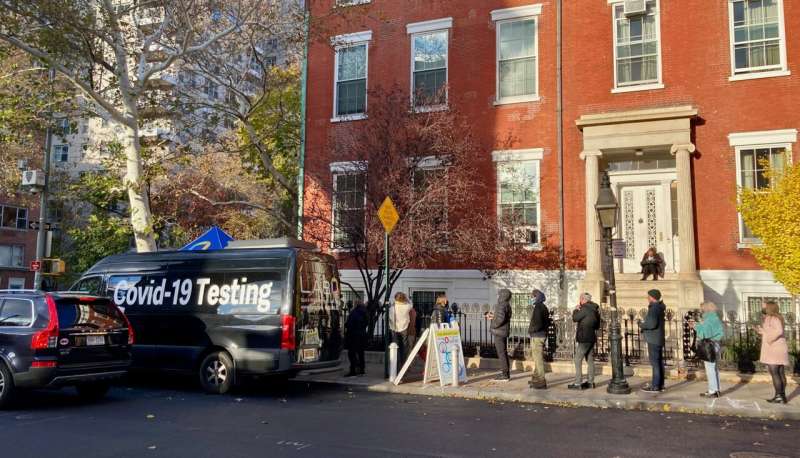This article has been reviewed according to Science X's editorial process and policies. Editors have highlighted the following attributes while ensuring the content's credibility:
fact-checked
trusted source
proofread
Universal COVID-19 care during first years of pandemic may have helped decrease health care disparities

A study by CUNY SPH researchers suggests that federal measures supporting free testing and treatment for COVID-19 may have lessened the health care impact of the pandemic and prevented an increase in racial/ethnic health disparities.
In a study published in the Journal of Urban Health, CUNY SPH alumni Madelyn Carlson (MPH) and Matthew Romo (Ph.D.), with Associate Professor Elizabeth Kelvin found that unmet health care need among New Yorkers during the first year of the pandemic did not differ significantly from 2018–2019 and in fact decreased among those without health insurance.
The researchers used data from the Community Health Survey, collected in 2018, 2019 and 2020, to compare unmet health care need within the past 12 months during year one of the pandemic (2020) versus the two years prior (2018–2019).
Overall, 12% of New Yorkers experienced unmet health care during the three-year period. In univariate and multivariable models, the first year of the pandemic was not associated with change in unmet health care need compared with 2018–2019.
However, researchers found significant effect modification by health insurance status. In the regression models stratified by health insurance status, adults without insurance had decreased odds of experiencing unmet health care during the first year of the pandemic compared to the two previous years, while those with health insurance had a slight increase.
The varying direction of the association suggests that the impact of unmet health care need had a differential effect by health insurance status, which may partially explain the lack of association between the first year of the pandemic and unmet care need in the population overall.
There was no effect modification by race/ethnicity, despite the fact that some groups were disproportionately impacted by COVID-19. The universal COVID-19 health care policy may have prevented an increase in health care access disparities.
"This analysis adds to the evidence that universal health care promotes population health," says Carlson. "Our findings suggested that even a limited version of universal health care (i.e., government financed, no-cost COVID-19 health care) had a major impact in preventing exacerbation of health care access disparities. We feel that these findings have important implications for how states and cities can respond to COVID-19 and future epidemics."
More information: Madelyn S. Carlson et al, Impact of the First Year of the COVID-19 on Unmet Healthcare Need among New York City Adults: a Universal Healthcare Experiment, Journal of Urban Health (2023). DOI: 10.1007/s11524-023-00752-9





















